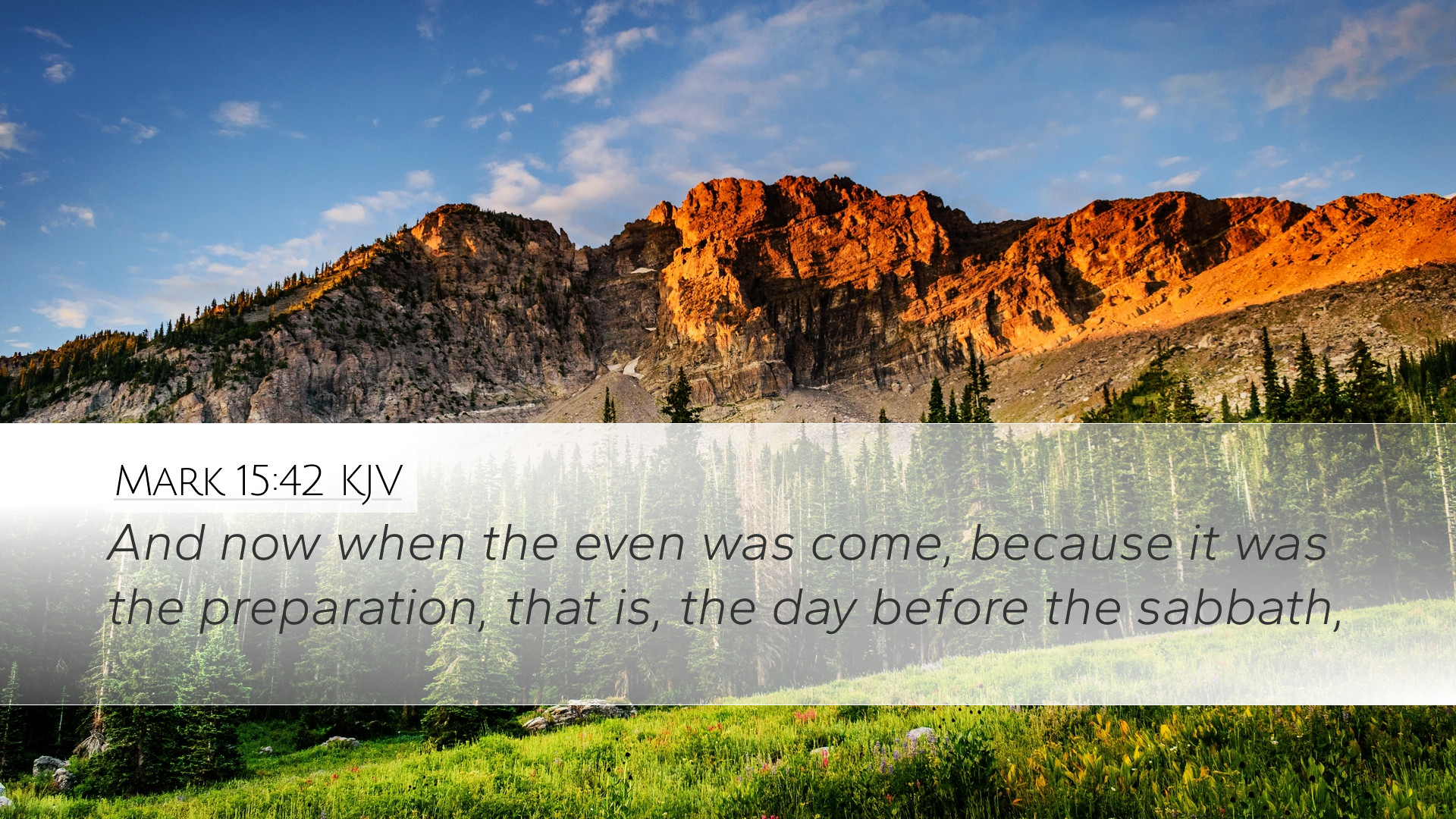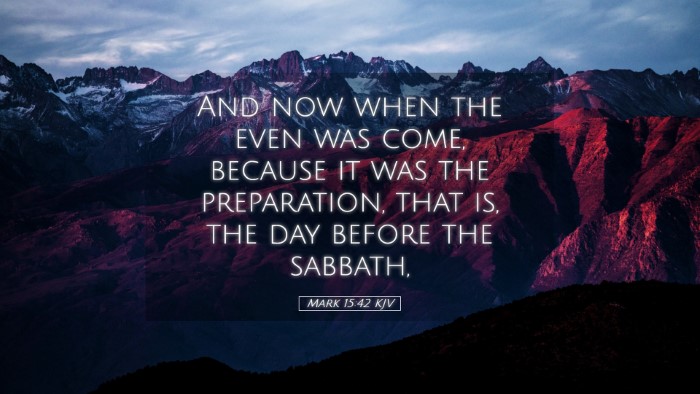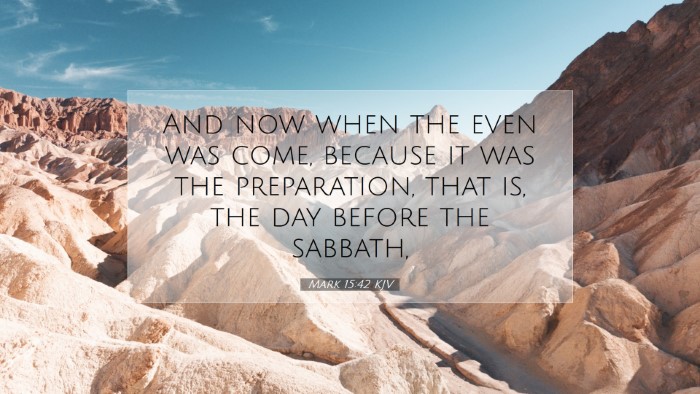Commentary on Mark 15:42
Verse Context: Mark 15:42 states, "And now when the even was come, because it was the preparation, that is, the day before the sabbath." This verse occurs in a critical narrative moment, post-crucifixion, setting the stage for the burial of Jesus.
Overview of the Passage
This passage details the events following the crucifixion of Jesus Christ. It signals a shift from the Passion narrative to the burial, emphasizing the impending observance of the Sabbath, which adds urgency to the burial process. This moment is deeply significant for understanding the fulfillment of prophecy and the sanctity of the Sabbath.
Insights from Commentaries
Matthew Henry's Commentary
Henry stresses the importance of the timing indicated in this verse. He notes that the crucifixion had taken place in the afternoon, and the burial needed to occur before sunset to avoid breaking the Sabbath law. This reflects the Jewish understanding of the day, which begins at sunset.
He writes about the significance of the “preparation,” underscoring that it is not merely a logistical note, but a theological one, as it relates to the fulfillment of Scripture regarding the death and burial of the Messiah.
Albert Barnes' Notes on the Bible
Barnes elaborates on the phrase "the preparation," explaining that it refers to the preparation for the Sabbath. He elucidates how the Jewish day of rest required thorough preparation, and this urgency underscores the cultural and religious context of first-century Judaism.
Additionally, he points out that the mention of "even" indicates that the day was coming to a close, reinforcing the significance of timing in Jesus' burial. Barnes emphasizes that, within this context, the actions of Joseph of Arimathea (who comes forth to claim the body) demonstrate a profound commitment to honoring Christ even amid societal pressures.
Adam Clarke's Commentary
Clarke reflects on the intricate relationship between the observance of the Sabbath and the events surrounding Jesus' death. He notes the irony that those who condemned Jesus were so meticulous about the Sabbath that they failed to recognize its true Lord.
He provides historical context, mentioning that the "preparation" referred not only to physical preparations but also to spiritual ones, as the disciples began to grapple with the implications of the death of Christ.
Theological Reflections
This verse invites a closer examination of what it means to prepare for the sacred. The urgency with which Joseph of Arimathea handles the burial highlights an essential aspect of Christian discipleship—making preparations for the things of God. Just as the Jewish people prepared for the Sabbath both physically and spiritually, so too are believers encouraged to prepare their hearts and lives for encounters with Christ.
Historical Significance
- The act of burial was a significant honor, showcasing Joseph's faith amidst a contentious political and spiritual environment.
- It also served to fulfill prophecies regarding Jesus’ burial, as stated in Isaiah 53:9, where it was foretold that He would be with the wealthy in death.
- The proximity to the Sabbath highlights the tension between Jewish law and the actions of those who felt a moral obligation to honor Jesus’ body.
Pastoral Applications
This verse provides rich material for pastoral teaching on devotion and the significance of the Sabbath in Christian discipleship. Pastors might draw parallels between the urgency of Joseph's actions and the urgency with which Christians today should approach their relationship with Jesus.
Moreover, it serves as a reminder of the importance of honoring the dead, a practice that is deeply rooted in love and respect, reflecting the character of Christ who honored our humanity unto death.
Conclusion
Mark 15:42 encapsulates a moment of profound transition and reflection. It invites believers to consider the implications of Jesus’ death and the subsequent burial within the framework of their faith. Through the lens of respected commentaries, we gain insight into not only the immediacy of the events, but also into the deeper reflections on obedience, preparation, and the fulfillment of divine promises.


